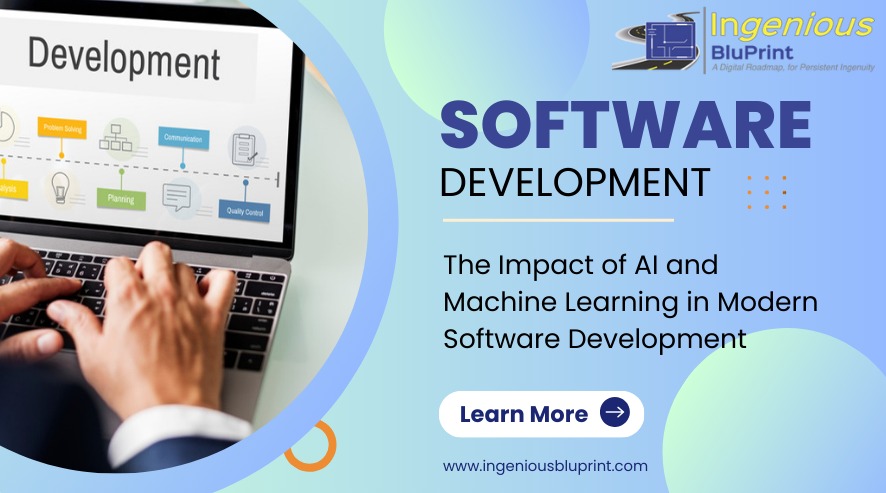Introduction:
In recent years, the integration of Artificial Intelligence (AI) and Machine Learning (ML) has revolutionized the landscape of software development. These cutting-edge technologies have not only enhanced the capabilities of software applications but have also paved the way for innovative solutions across various industries. In this blog post, we’ll delve into the profound impact that AI and ML are having on modern software development.
Enhancing User Experience:
Personalization and Recommendations: AI-driven algorithms can analyze user behavior and preferences to provide personalized experiences and product recommendations. This has become a cornerstone for e-commerce platforms, content streaming services, and social media networks.
Natural Language Processing (NLP): NLP-powered applications understand and respond to human language, enabling chatbots, virtual assistants, and content summarization tools. This has revolutionized customer support and content creation.
Optimizing Development Processes:
Automated Testing and Quality Assurance: ML algorithms can identify patterns and anomalies, streamlining the testing process and ensuring higher software quality. This reduces the likelihood of bugs and enhances overall reliability.
Code Generation and Auto-Completion: AI tools can generate code snippets, auto-complete functions, and even suggest optimizations. This accelerates the development process, making it more efficient and error-free.
Enabling Data-Driven Insights:
Predictive Analytics: ML models can analyze large datasets to make predictions and recommendations. This is invaluable in fields like finance, healthcare, and marketing for making data-driven decisions.
Fraud Detection and Cybersecurity: AI-powered systems can identify suspicious activities, detect anomalies, and respond in real-time, fortifying applications against cyber threats.
Advancing IoT and Edge Computing:
Edge AI for Real-Time Processing: AI at the edge allows devices to process data locally, reducing latency and dependence on cloud servers. This is crucial for applications that require real-time responses, like autonomous vehicles and smart home systems.
Intelligent Automation in IoT: AI algorithms enable IoT devices to learn and adapt to user behavior, optimizing energy consumption, and enhancing overall performance.
Shaping Future Technologies:
AI in Augmented and Virtual Reality: AI-driven algorithms enhance the immersion and interaction in AR/VR applications, enabling more realistic simulations and experiences.
Autonomous Systems and Robotics: Machine Learning is fundamental in enabling robots and autonomous systems to navigate, learn, and make decisions in dynamic environments.
Conclusion:
The integration of AI and Machine Learning in modern software development is transforming industries and pushing the boundaries of what is possible. As businesses continue to harness the power of these technologies, we can expect even more groundbreaking applications that will reshape the way we interact with software. Embracing AI and ML is not just a trend, but a strategic imperative for staying competitive in today’s rapidly evolving technological landscape.
